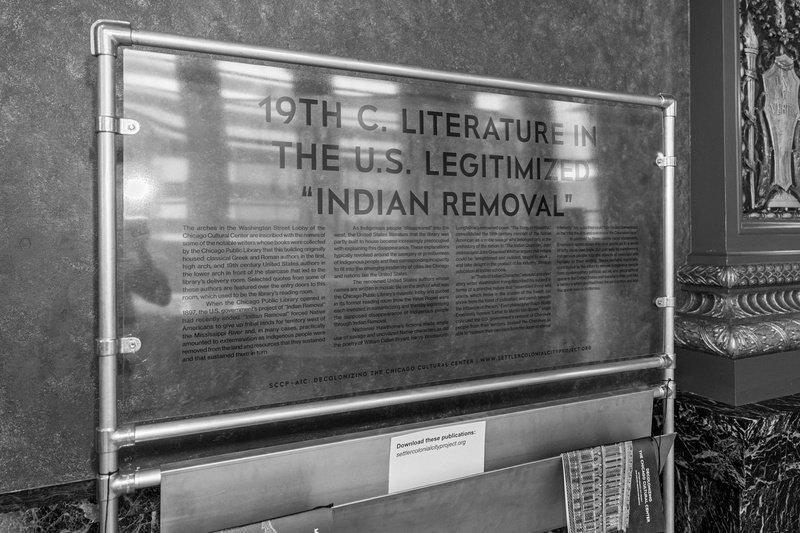The Petro-Biennial Complex
Venue
-
Chicago Cultural Center
78 East Washington Street, Chicago, ILCommon Ground (Garland Gallery, 1st Floor)
view on google maps
Growing concerns about impending environmental collapse have prompted increased attention to Indigenous relationships with the land and its multiple systems. These relationships stand in stark contrast to the extraction of resources from Indigenous lands, which has been a constitutive component of settler colonialism. The first waves of resource extraction—the desire for precious metals, valued animal pelts, agricultural products, and land to cultivate large crops of grain and herd cattle—have given way to the privatization of water, ongoing mining of natural and mineral resources, and in particular the demand for oil. Oil extraction and transportation has compromised Indigenous land, sustenance, and life itself, from the Amazon jungle to Standing Rock, North Dakota. At the same time, this capital is transformed into philanthropy by funding this and other cultural events. Biennials and museums are supported by compromised wealth, yet cultural agents operating within their sponsorship seek to promote the very stories that reveal these relationships and their complicities.
Ultimately, most major cultural sponsors have a colonialist dimension. In this landscape, how can cultural agents operate while still maintaining a critical discourse?
A roundtable discussion on petro-colonialism, Indigenous resistance, petro-philanthropy, and petro-culture. Participants include Fawn Pochel (First Nations Oji-Cree), Education Coordinator, American Indian Center, Chicago; Elsa Hoover (First Nations Anishinaabe/White), writer, mapmaker, M.Arch. student, Harvard Graduate School of Design; Nitasha Dhillon and Amin Husein, Decolonize This Place; Todd Palmer, Executive Director and Paulo Tavares, Curator, of the Chicago Architecture Biennial. Moderated by Andrew Herscher and Ana María León, Settler Colonial City Project.
This program is organized by Biennial contributor Settler Colonial City Project in partnership with Temple Hoyne Buell Center for the Study of American Architecture, Columbia University.
RSVP recommended.
